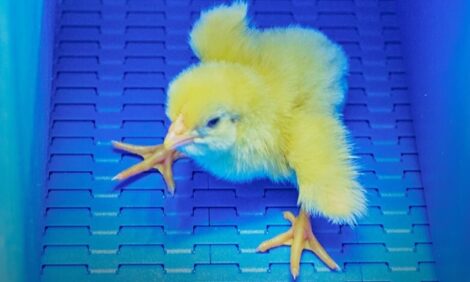



Effect of Feeding Hemp Seed and Hemp Seed Oil to Laying Hens
Inclusion of the hemp products, hemp seed and hemp seed oil in the diets of laying hens up to levels of 20 and 12 per cent, respectively, did not adversely affect the performance of laying hens and increased the ω–3 fatty acid content of eggs, according to new research from Canada.N. Gakhar of Canada’s University of Manitoba and co-authors there and at the University of Adelaide in Australia have investigated the efficacy and safety of feeding hemp seed and hemp seed oil to laying hens in terms of their effects on performance and egg yolk fatty acid content.
In a paper published in Poultry Science, they explain that 48 19–week–old Bovan White laying hens were fed one of five diets containing either hemp seed (HS) or hemp seed oil (HO). The level of HO was four, eight of 12 per cent, whereas the level was 10 or 20 per cent for the HS. A set of eight birds fed wheat–, barley– and corn oil–based diets served as the control. Performance was monitored over 12 weeks.
Average hen–day egg production was not affected upon feeding of either HS or HO diets.
Egg weight was higher than that of the controls for hens consuming the 20 per cent HS diet (P<0.05). Feed intake was lower than that of the controls for birds consuming the four per cent HO diet but similar across other treatments. Final bodyweights were not affected by diet, with the exception of being lower than that of the controls (P<0.05) in hens consuming the 12 per cent HO diet.
The total egg yolk ω–3 fatty acid content increased linearly (P<0.05) with increasing dietary α –linolenic acid provision with the HS– or HO–based diets. A quadratic response (P<0.05) was observed for docosahexaenoic acid (DHA) levels in egg yolk in response to increasing dietary α –linolenic acid supply.
The expression of hepatic fatty acid desaturase 1 and 2, key genes for the desaturation of long-chain polyunsaturated fatty acids, was significantly decreased (50 to 60 per cent of controls; P<0.05) as a result of feeding HS or HO diets.
Based on the results from the current study, Gakhar and co-authors report that the inclusion of the hemp products HS or HO in the diets of laying hens up to a maximum level of 20 and 12 per cent, respectively, does not adversely affect the performance of laying hens and leads to the enrichment of the ω–3 fatty acid content of eggs.
Reference
Gakhar N., E. Goldberg, M. Jing, R. Gibson and J.D. House. 2012. Effect of feeding hemp seed and hemp seed oil on laying hen performance and egg yolk fatty acid content: Evidence of their safety and efficacy for laying hen diets. Poult. Sci. 91(3):701-711. doi: 10.3382/ps.2011-01825
Further Reading
| - | You can view the full report (fee payable) by clicking here. |
April 2012








